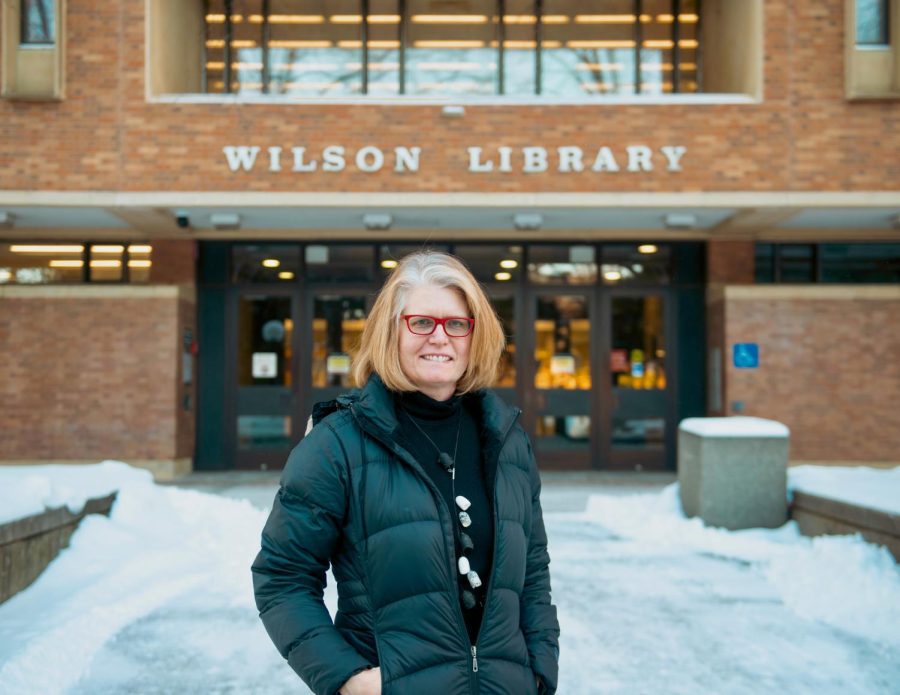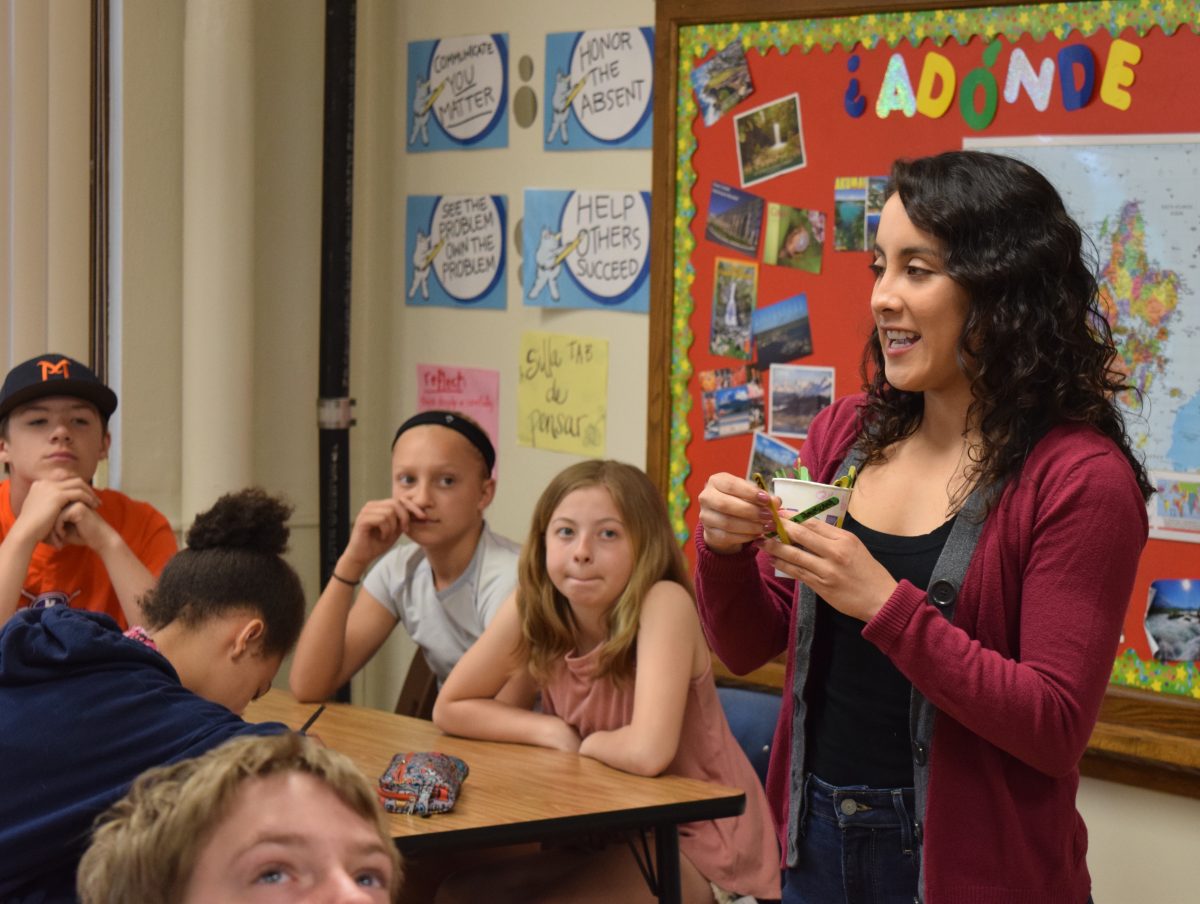The University of Minnesota was awarded a $615,000 grant in December to expand the Mapping Prejudice Project to continue identifying racial disparities in housing and stop racial covenants in property deeds.
Racial covenants are legal contracts that were included in property deeds that were meant to exclude people of color from securing housing. Although racial covenants are no longer legal today, the language is still embedded in many property deeds. The University of Minnesota Libraries’ Mapping Prejudice Project (MPP) uses historic maps and aerial photographs to construct a new map of known racial covenants in the local area.
Racial covenants created systemic barriers that not only stopped people of color from buying property to build wealth, but also restricted access to community resources like schools or parks.
Kirsten Delegard, MPP project director, said they will use the Mapping Trust grant to expand their research beyond local communities and create formal partnerships with organizations. The project has previously documented and mapped racial covenants in Hennepin and Ramsey counties, in addition to Milwaukee, Wisconsin.
MPP is also using funding from the grant to seek candidates to fill a new Community Engagement Lead position within the project. The team will begin reviewing submissions in early February. Delegard said they are looking for someone who “understands how to move commitment to action.”
“We’re looking for someone who brings knowledge of the BIPOC communities and the BIPOC experience here in the Twin Cities, and someone who understands how to bring diverse groups of people together,” Delegard said.
Mellon Foundation program officer Patricia Hswe said this grant was awarded to MPP because promoting social justice is a goal of both organizations.
“Our hope is that UMN will foster an equitable community co-creation model for the MPP that draws on a broad swath of community members, such as activists, teachers and public historians, with whom to engage on original sources, like housing covenants, geospatial tools and data for generating digital maps,” Hswe said.
Since the project began in 2016, Delegard said MPP has focused on creating a map to show the location of racial covenants and starting a larger conversation about the impact of the covenants.
“We mostly wanted to get people talking about the history and what the implications are for today,” she said.
To create these maps, the project collects data of historic property deeds and then determines whether they contain racial covenants using computer scripts.
“Our team could write a script for OCR [Optical Character Recognition] that would ‘read’ the documents and flag any that contained possible racial language,” MPP Property Records Specialist Penny Petersen said in an email to the Minnesota Daily. “For example, if OCR flagged the document containing the word ‘white’ or ‘race’ someone would have to read that document to determine context.”
Petersen said reading the documents manually would take years without OCR technology. This has also reduced the amount of documents volunteers need to log and transcribe for the project.
“The language of these covenants is openly racist and shocking to modern ears, but it does clearly demonstrate that racial discrimination does exist,” Petersen said. “To my mind, this is the real value of reading these old property records.”
The project also collaborates with Just Deeds, a partner organization started with support from Mapping Prejudice. Maria Cisneros, a Golden Valley city attorney and co-founder of Just Deeds, said their organization helps people remove racial covenants from their house deeds.
Cisneros said she was shocked when she learned about racial covenants in property deeds. “I was disappointed in myself, it seems really obvious now that all of this inequity was intentional,” she said.
Cisneros said she and her husband Miguel drafted their own form to remove the covenant on their newly purchased property. At the time deed documents were written for their house, there was a racial covenant stating that he could not live there due to his race.
“I wasn’t aware of it until we actually purchased the current home where we live in and I didn’t know what it was until Maria pointed it out,” said Miguel, who is Afro-Latino. “At the time, she was joking with me by saying, ‘Hey, it looks like you can only live in our house if you are my servant’ and I’m like, ‘Wait what?’”
Miguel said he felt he had never been “attacked in that way before,” after discovering the racial covenant in their property deed.
“Just the fact that somebody wrote it up and put it in there, was very degrading,” he said.
Maria said Mapping Prejudice helped the Just Deeds project by providing data to reveal locations of property with known racial covenants. Just Deeds then informs people about these racial covenants and the process of getting them removed from a deed.
“You can start to see patterns that show how intentional decisions about the allocation of resources are…and why resources and opportunities are less likely to be available to people of color based on the demographic patterns created,” Maria Cisneros said.


















lostoncampus
Feb 1, 2022 at 10:10 am
:”The language of these covenants is openly racist and shocking to modern ears, but it does clearly demonstrate that racial discrimination (DID ) does exist,” Petersen said. “To my mind, this is
the real value of reading these old property records.”
“Im not sure how exactly an group of academics is going to change a legally binding deed, that isnt in their name, or have any relation to any 3rd party ?? ?
If they believe they can – more power to them – but with it being MY house, I think it is up to ME what happens to my deed. I cant imaging its cheap, easy or fun to change a deed on a 112 year old house
I wont be finding out
CapnRusty
Feb 1, 2022 at 9:46 am
In the second paragraph: “Although racial covenants are no longer legal today, the language is still embedded in many property deeds.” So the grant money will be spent only for the purpose of eliminating facts from the historic record — and for virtue signaling.